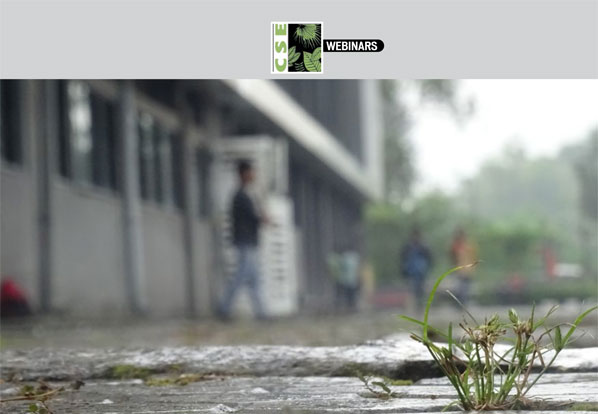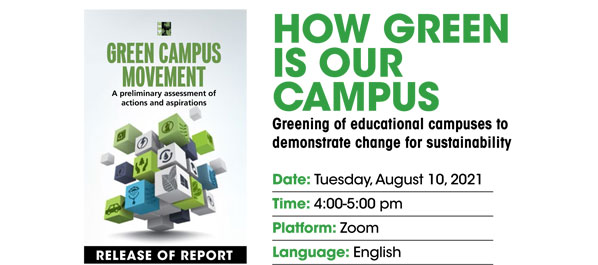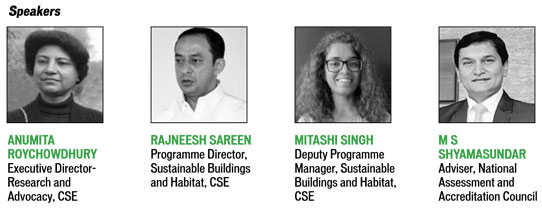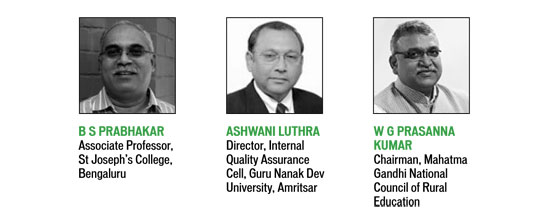Welcome to the Social Media Research @ JNU Blog!!! This Blog is created to share information, knowledge networking and debating on the issues related to Social Media Studies and Advanced Social Media Research. Topics to be covered in this blog are (but not limited to): Mass Media, Social Media, New Media, Broadcasting, Print Media, Educational Media, Journalism, Mass Communication, Development Communication, Media Law, Media Literacy, ICT for Development and other relevant areas.
Monday, August 23, 2021
Submit Your Research Stories: AWSAR
Saturday, August 21, 2021
New Book "Illicit Medicines in the Global South: Public Health Access and Pharmaceutical Regulation" | by Mathieu Quet, Routledge, 2021
By Mathieu Quet, Routledge, 2021, ISBN 9781032048154.
Table of Contents
Introduction – Faith in Fakes?Chapter 1 – In the beginning, a conflictPart 1 - Pharmaceutical Geographies: the mutations of an industryChapter 2 – The pharmaceutical globalizationChapter 3 – Selling at all costsPart 2 - Pharmaceutical security, between public health and the marketChapter 4 – The regulatory turn to securityChapter 5 – The exercise of pharmaceutical controlPart 3 – Pharmaceutical logistics: commodities circulation and lifeformsChapter 6 — Logistic regimes and the exercise of powerChapter 7 – Diverting flows, contesting powerConclusionPost-Scriptum
About the Author: Mathieu Quet is a Senior Research Fellow in Sociology at Institut de Recherche pour le Développement, Ceped, Université de Paris, France. His current research focuses upon the entanglements of science, technology, and development in postcolonial contexts.
Tuesday, August 17, 2021
Pune Knowledge Cluster, CODATA India National Committee & INSA organize a Webinar on "COVID-19 Data and Analysis" | 24th August at 4:00 PM IST
A Webinar on COVID-19 Data and Analysis
Jointly organized by the CODATA India National Committee, Pune Knowledge Cluster, and Indian National Science Academy
Tuesday, August 24, 2021 at 4:00 PM IST
Speaker:
Dr. Joy Merwin Monteiro
[Dept. of Earth & Climate Science, IISER Pune, India]
Abstract: In this talk, the speaker will recount the COVID-19 epidemiological surveillance activities that were conducted by a large group of volunteers in Pune city since March 2020. Starting as an effort to curate and collate the data that was being collected by the city administration, it soon transformed to a comprehensive effort to estimate the state of the epidemic in Pune city and inform the city's efforts to contain and manage the epidemic. The speaker will talk about the enabling factors, results and challenges encountered during the past year, and briefly reflect upon what could have helped us stay ahead of the (epidemic) curve.
Chaired by:
Prof. Naresh Gupta
[Former Director & Professor of Medicine, Maulana Azad Medical College, Delhi, India]
All are cordially invited.
Join the Webinar: via Zoom | via YouTube
Sunday, August 15, 2021
National Conference on Science and Technology in India | 16-18 August
Tuesday, August 10, 2021
"India Should Not Carry Colonial Baggage In Addressing Environmental Issues" | S Gupta, OutlookIndia.com
India Should Not Carry Colonial Baggage In Addressing Environmental Issues
Time is running out. India must revisit its spiritual roots to discover its own form of environmentalism

MHA Financial Assistance to the R&D Projects in Thrust Areas of Forensic Science to Building Capability in Forensic Services
(a) Introduction (b) Details of EMR Scheme (Revised)
Monday, August 9, 2021
CSE Webinar on Green Campus Movement | 10 August
| ||||||||||||||||||||||||||||||||||||||||||||||||
| ||||||||||||||||||||||||||||||||||||||||||||||||
--
Thursday, August 5, 2021
Science, Technology and Society, Special Issue on Technologies without Borders? The Digitization of Society in a Postcolonial World
Technologies Without Borders? The Digitization of Society in a Postcolonial World | Mathieu Quet, Marine Al DahdahGovernance and Accountable Citizenship Through Identification Infrastructures: Database Politics of Copernicus (France) and National Register of Citizens (India) | Éric Dagiral, Khetrimayum Monish SinghFrom Expression to Expulsion: Digital Public Spaces as Theatres of Operations in Nepal | Sohan Sha, Mathieu QuetTweet, Set, Match: Negotiating the Boundaries of Digital Technologies in Elite Tennis | Vidya Subramanian, Marianne Noel, Harmony PaquinSmart Cards for All: Digitalisation of Universal Health Coverage in India | Marine Al Dahdah, Rajiv K. MishraIf You Build It, Will They Come? Exploring Narratives That Shape the Internet in Nepal | Shailesh B. Pandey, Nischal RegmiInnovation and Firm-level Labour Productivity: A Comparison of Chinese and Indian Manufacturing Based on Enterprise Surveys | Poulomi Bhattacharya, Badri Narayan RathEvaluation of Technological Innovations and the Industrial Ecosystem of Science Parks in Shanghai: An Empirical Study | Min-Ren Yan, Haiyan Yan, Lingyun Zhan, Xinyue Yan, Mengen XuEmerging Industrial Revolution: Symbiosis of Industry 4.0 and Circular Economy: The Role of Universities | Seeram Ramakrishna, Alfred Ngowi, Henk De Jager, Bankole O. Awuzie
New Article "The Appropriated Body: Biometrics Regime, The Digital State and Healthcare in Contemporary India" | by RK Mishra, Global Policy, 2021
The Appropriated Body: Biometrics Regime, The Digital State and Healthcare in Contemporary India
by Rajiv K. Mishra, Global Policy, 2021, https://doi.org/10.1111/1758-5899.12945
Abstract: The sheer size of the Indian population and its presence in a gigantic biometrics database has made possible the appropriation and control of millions of bodies on an everyday basis. It is being done at different levels by players operating the Digital State, with a markets-based approach aiming to provide governance and development entitlements, healthcare being one among them. However, at the receiving end of this appropriative force are the 22 percent below poverty line (BPL) population, accounting for around 300 million people living at less than 1.25 dollars per day. These tend to be bodies facing a double jeopardy of historical-social-economic inequalities and negotiating the biometric means of accessing healthcare entitlements. Specifically, this refers to an arduous process of proving one's 'mistrusted' self to be able to enter the process of availing medical treatment. Based on qualitative fieldwork in Jharkhand and Delhi, the paper argues that the very process of biometrics-based access to healthcare appropriates the bodies of BPL families even before they get any medical treatment. Findings reflect that the biometrics (technological) means for identifying the mistrusted bodies of BPL populations adds to the existing social inequalities.
Wednesday, August 4, 2021
CODATA-Connect Webinar on the Importance of Data Cleaning | 5th August at 3:30 PM IST
Registration link: https://attendee.gotowebinar.com/register/2137644534742391819
 Data cleaning might seem dull and uninteresting, but it's one of the most important tasks you would have to do as a data science professional. Correcting or removing "dirty data" improves the reliability and value of response data for better decision-making. Data cleaning involves the detection and removal (or correction) of errors and inconsistencies in a data set due to the corruption/irrelevance or inaccurate entry of the data. Incomplete, inaccurate or irrelevant data is identified and then either replaced, modified or deleted.
Data cleaning might seem dull and uninteresting, but it's one of the most important tasks you would have to do as a data science professional. Correcting or removing "dirty data" improves the reliability and value of response data for better decision-making. Data cleaning involves the detection and removal (or correction) of errors and inconsistencies in a data set due to the corruption/irrelevance or inaccurate entry of the data. Incomplete, inaccurate or irrelevant data is identified and then either replaced, modified or deleted.
Incorrect or inconsistent data can create a number of problems which lead to the drawing of false conclusions. Therefore, data cleaning can be an important element in some data analysis situations. Having wrong or bad quality data can be detrimental to your processes and analysis. Poor data can cause a stellar algorithm to fail. However, data cleaning is not without risks and problems including the loss of important information or valid data.
Data cleansing is also important because it improves your data quality and in doing so, increases overall productivity. When you clean your data, all outdated or incorrect information is gone – leaving you with the highest quality information. This ensures you do not have to wade through countless outdated documents and allows you to make the most of your project hours
 Name of the Speaker: Simisani Ndaba
Name of the Speaker: Simisani Ndaba
University of Botswana
Simisani has a history of working in the higher education industry having been working at the Department of Computer Science at the University of Botswana as a Teaching Assistant since 2016. She graduated with her Masters of Science in Computer Information Systems where her research work was based on Information Retrieval in Authorship Identification using authors' writing styles using PAN at CLEF. PAN is a series of scientific events and shared tasks on digital text forensics and stylometry. Prior to that, she worked as a Business Analyst at the Gauteng Department of Education working on data management and business intelligence in South Africa. She also holds a Bachelor's degree in Business Information Systems and is due to complete a Post Graduate Diploma in Education, a teacher/trainer qualification in October 2021. She is part of the Ladies in R Botswana based in the University of Botswana and is an assistant in Health Informatics Africa.
CODATA Connect – Data Science Journal Early Career Essay Competition 2021
CSSP Talk on Innovation Systems Transition in Russia: Current Status and the Way Forward | 11th August at 3:00 pm IST
Centre for Studies in Science Policy
Jawaharlal Nehru University
Invites you to CSSP Wednesday Lecture Series
Talk on
Innovation Systems Transition in Russia:
Current Status and the Way Forward
By
Priv.-Doz. Dr. Thomas Wolfgang Thurner
(Professor, NRU Higher School of Economics, Moscow, Russian Federation)
Join: https://meet.google.com/hsg-wnzj-kka
Date: Wednesday, 11th August 2021 | Time: 3:00 pm IST
About the Speaker: Dr. Thomas Wolfgang Thurner is a Leading Research Fellow in the Research Laboratory for Economics of Innovation, Institute for Statistical Studies and Economics of Knowledge, at National Research University Higher School of Economics in Moscow, Russia since April 2011. He is also a Professor in the Department for Educational Programmes, Institute for Statistical Studies and Economics of Knowledge, at National Research University in Moscow, Russia since August 2014. His academic and research profile is available at https://www.hse.ru/en/org/persons/29168682.
All are welcome to attend the Lecture.
Coordinator, CSSP Lecture Series
Tuesday, August 3, 2021
Sunday, August 1, 2021
CfAs: BRICS Young Scientists Conclave & Innovator Prize 2021
FW: BRICS Academic Forum 2021 | August 3-6, 2021
|
|










